This is a follow-up to my last essay, ‘Naturalism, According to a Christian Apologist (1)’. This was on the article ‘What is Naturalism?’, which was published in the website ‘Compelling Truth: Worldview and Apologetics’.
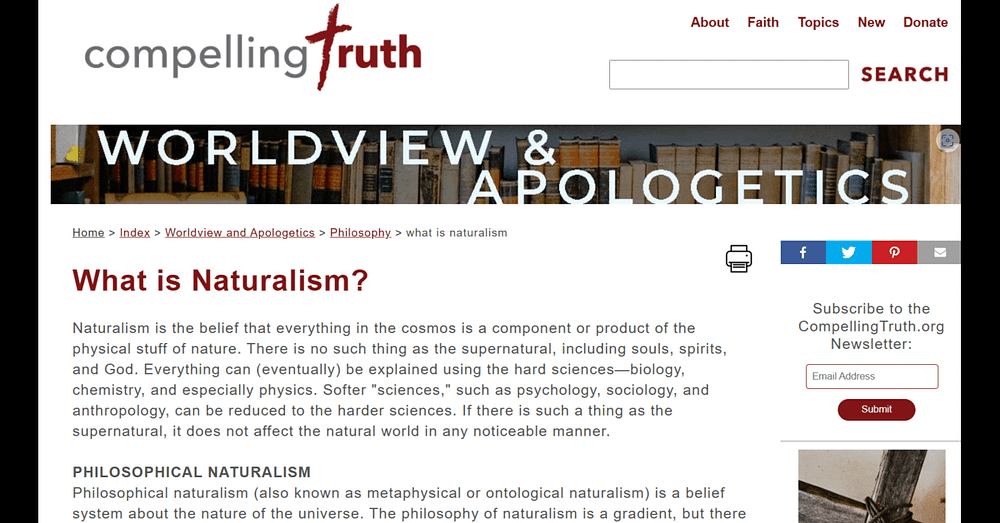

Science as a Religion?
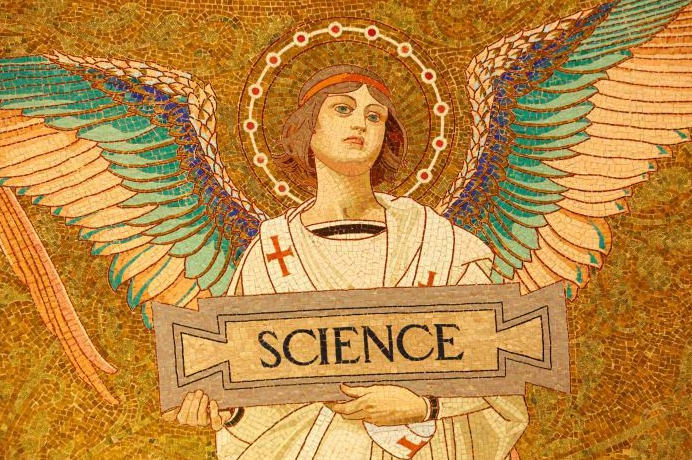
This Christian apologist offers his readers a warning against what he deems to be another — rival — religion, which goes as follows:
“Endeavoring to use science to explain and describe our world is a noble undertaking. But when scientists go so far as to deny a basic sense of self or even a sense of pain, it’s an indication their desire for pure science has developed into a religion.”
It’s worth noting here how quickly and smoothly (i.e., without any changes of arguments or terms) this Christian apologist switched from criticising naturalists to criticising scientists themselves.
Elsewhere in the article ‘What is Naturalism?’ it’s also stated that naturalists “turn the assertion that there is no supernatural into a religion” — although nothing much is really said as to why that is the case…
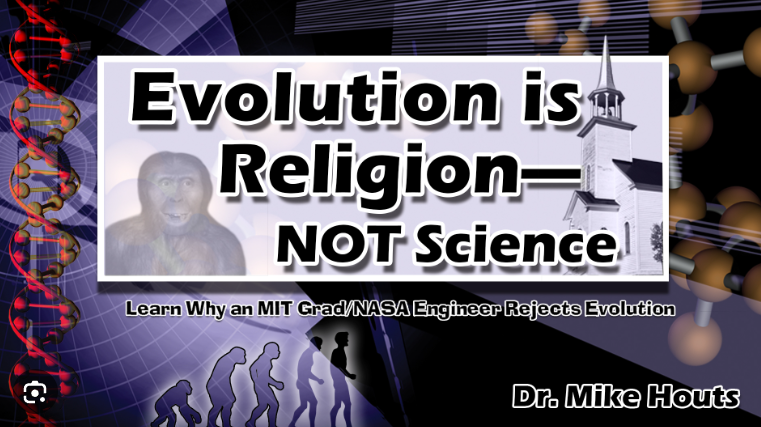
So perhaps classing science (as is also the case with naturalism, materialism, Darwinism and atheism) as a religion is just a cheap, easy and childish gimmick.
In any case, surely naturalism “develop[ing] into a religion” should be a good thing to a religious person.
Put another way.
If science (as well naturalism, materialism, Darwinism, and atheism) can really become genuinely religious in nature, then shouldn’t that be a good thing to this particular Christian apologist?
Yes and no.
Sure, religion is a good thing. But the True Religion — in this case Christianity — is a far, far better thing.
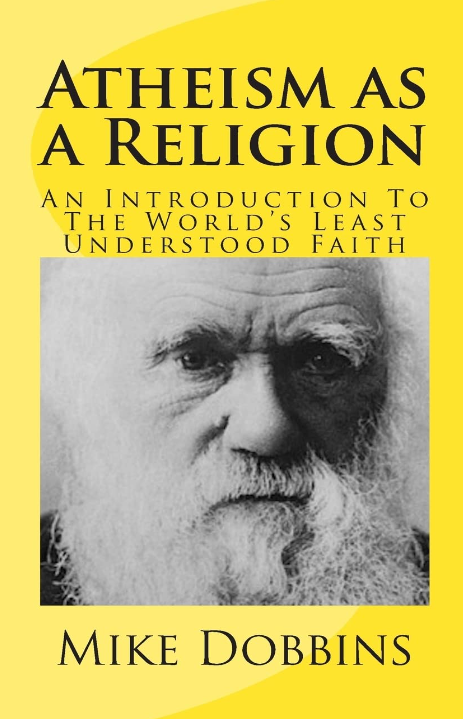
Incidentally, whereas here it’s said that science can “develop[] into a religion”, the usual religious argument is that science, naturalism, evolution, materialism and atheism are religions from the very beginning.
So it can be supposed that when religious people say that science, naturalism, atheism, evolutionary theory, materialism and physicalism are religions, they also mean that the believers in these isms aren’t being honest with themselves. That is, these various ists are criticising religion at the very same time as upholding their own religion…
Except that these accusations are, as already stated, very cheap, easy and childish. In other words, it’s something readers will have come across in school playgrounds.
Let me explain that.
If a scientist, naturalist, materialist, “evolutionist” or atheist accuses a religious person of x, then the latter will accuse the former of being x too. Thus, we have lots of religious people who’ve accused scientists, naturalists, materialists, evolutionists and/or atheists of having “faith” in science/naturalism/materialism/evolution/atheism. Indeed, they’ve also stated that science/evolution/naturalism/atheism/materialism “is a religion”.
This happens at a lot at infant and junior schools. That is, when a little kid accuses another little kid of being x, then that other little kid accuses the accuser of being x too.
The apologists’ bottom line is this.
You accuse us of being x, yet you don’t even realise that you’re x too.
It can be easily argued that very few religious persons genuinely do believe that science, naturalism, materialism, atheism or evolution is a religion, or that people believe in science, naturalism, material, atheism, evolution purely on faith.
Of course, it must be admitted that there will be exceptions to this in that a very small number of people may well use science, naturalism, materialism, atheism and evolutionary theory as a literal substitute for a religion.
That conceded, the comparisons between religion and people’s commitment to science, naturalism, materialism, atheism and/or evolution are often so vague, tangential and rhetorical that, in most cases, I doubt that these claims are even believed by most of the religious people who actually state them.
Still, to claim that scientists, naturalists, materialists, atheists and/or evolutionists have faith in what they believe is extremely useful, and it scores many points.
In any case, many other people have gone into great detail as to why science, naturalism, evolution, materialism and atheism aren’t religions. [See here, here, here, and here.]
A Christian Apologist on Methodological Naturalism
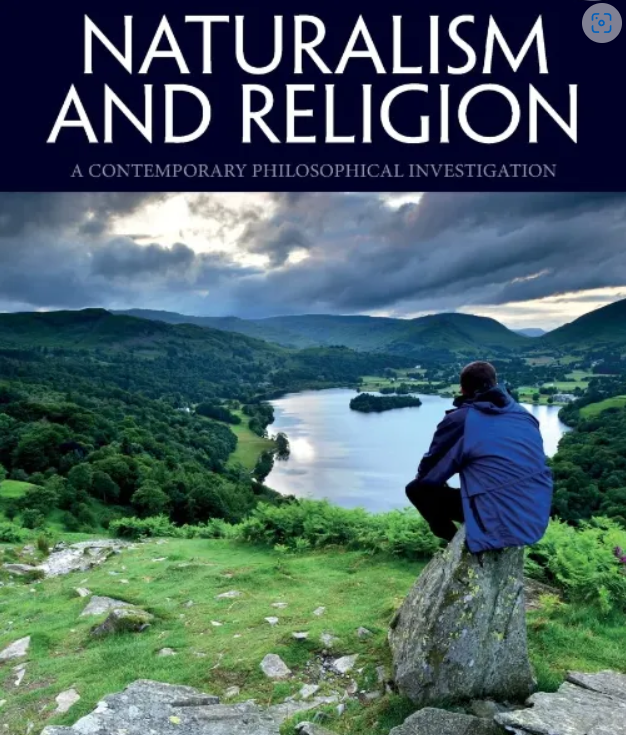
As with other parts of this Christian apologist’s account of naturalism, there are indeed passages from it which I have no problems with.
Take, for example, the following words:
“In addition to naturalism as a philosophical worldview, it can also be a method of learning and exploration.”
The continuing passage is also acceptable:
“Methodological naturalism is a system of scientific study wherein nature is assumed to have a natural basis. Divine intervention (miracles) is not taken into account in the investigation of natural phenomenon.”
Finally, I have no deep problem (apart from wording — see note 1) with this:
“[N]aturalists also believe that everything we think we feel has a corresponding neurological basis that will one day be interpreted — mapped out on an MRI. The phenomenon we call consciousness is merely the complexity of our physical matter.”
However, the concluding passage is a somewhat more controversial account of what scientists believe. It goes as follows:
“As the supernatural is beyond our abilities of description, explanation, and prediction, scientists believe the possibility of the supernatural should not influence the scientific work of description, explanation, and prediction.”
Personally, I would never say that
“the supernatural is beyond our abilities of description, explanation, and prediction”.
That (well) acknowledgment hints at the fact that there are indeed supernatural things: it’s just that they transcend “description, explanation, and prediction”. In other words, the supernatural domain does actually exist (or is real), but it simply isn’t within the remit of science. Instead, it’s in the remit of religion. (This is a hint at the two “non-overlapping magisteria” of Stephen Jay Gould?)
So God, gods, ley lines, pink pixies, holy cows, virgin births, morphic resonance, clairvoyance, precognition, telekinesis, levitation, extrasensory perception, poltergeists, ectoplasm, invisible men, etc. all exist (or are real), it’s just that they’re all beyond our scientific “abilities of description, explanation, and prediction”.
Thus, if you simply state that “x is supernatural”, then, by faith and definition, you automatically place x beyond science.
Yet almost anything can be the value of the variable x!
And that literally includes almost anything — e.g., ley lines, pink fairies, astral travelling, holy cows, virgin births, clairvoyance, precognition, telekinesis, levitation, extrasensory perception, poltergeists, ectoplasm, invisible men, etc.
Thus, the only way to exclude any given x from the domain of the supernatural is to adopt a particular religion which doesn’t include or even allow such a given x within its supernatural domain.
A Christian Apologist on Materialism and Reductionism
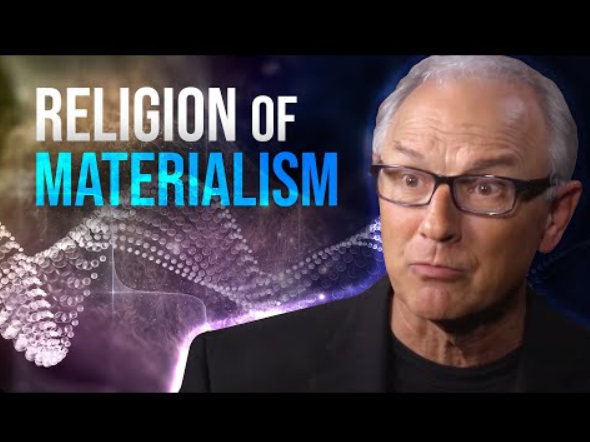
Now take the following definition of naturalism from the ‘What is Naturalism’ article:
“Naturalism is the belief that everything in the cosmos is a component or product of the physical stuff of nature.”
Then this sentence is added to the words above:
“There is no such thing as the supernatural, including souls, spirits, and God.”
Much is made of made of what “materialists” (if not always naturalists) take “physical stuff” to be by religious people. They believe they’ve scored some kind of scientific or philosophical (i.e., not religious) point when they tell us that physicists have gone beyond, say, a fixation on “hard particles” and “tangible stuff”, whereas materialists haven’t. Thus, they conclude, materialism should now be a dead-and-buried philosophy.
Of course, this is a caricature of materialism.
It’s certainly a caricature of physicalism. (That’s if we don’t see the words ‘materialism’ and ‘physicalism’ as synonyms.) That’s because this is actually the position of 19th century materialism. Thus, it’s a clear and obvious straw target.
Literally all the naturalists (if not all the materialists) I’ve read accept the existence of forces, fields, spacetime, dark matter, dark energy, etc. and whatever else is in the general consensus in contemporary physics.
That is what makes them naturalists.
To go into more detail.
Some religious people seem to conflate naturalism and materialism with what many naturalists and materialists believed in the 19th century and before — or at least up until (roughly) the 1920s. In other words, they have a view of naturalism and materialism that might have been correct in the early 20th century. Yet even by the 1920s — if not before — this stereotype of naturalism and materialism was no longer the case when it came to naturalists and most materialists.
All this largely boils down to religious apologists claiming that naturalists and materialists believe that all matter — and indeed everything else — is what they call “tangible stuff”. Indeed, the frequent claim used to be — and sometimes still is — that materialists (if not naturalists) believe that everything is made up of “hard particles”.
Yet all that began to change with field physics in the 19th century — which all naturalists almost immediately took on board.
Why was that?
It was largely because such naturalists weren’t mindlessly committed to tangible stuff or to anything else like that — they were committed to the findings of physics and the other sciences. And physicists discovered fields (other than gravity) in the 19th century. [See here.]
In addition, when Einstein showed that matter and energy are interchangeable, naturalists immediately took that on board too. Thus, as an obvious consequence of that, naturalists also came to believe that energy — not matter — is (as it were) prima materia. Or at least they came to believe that matter is a form of energy.
Something similar occurred with the rise of quantum field theory.
Again, naturalists (almost by definition) took quantum field theory on board. That is (as with Einstein’s equation of matter and energy), naturalists came to see that fields — not energy — are prima materia; and therefore that energy is a property of such fields.
Again, the important point here is (even if the technical details of physics are wrong or misinterpreted) that although there were (radical) shifts in parts of physics, most naturalists still took on board these new findings, commitments and theories.
(‘What is Naturalism?’ specifically mentions dark matter and dark energy.)
Reductionism?

It was stated in the first essay that I had no deep problem with some of the accounts of naturalism. However, in the following section, things go askew. Here goes:
“Everything can (eventually) be explained using the hard sciences — biology, chemistry, and especially physics. Softer ‘sciences,’ such as psychology, sociology, and anthropology, can be reduced to the harder sciences.”
The first problematic word above is “everything”.
Does everything include… literally everything?
What about sets, numbers, the past, music, etc.?
Can they be explained by “biology, chemistry, and especially physics”?
No, naturalists don’t believe that everything can be “explained” by “the harder sciences”.
There’s also an assumption here that all naturalists are reductionists.
It certainly isn’t the case that all naturalists believe that the
“softer ‘sciences,’ such as psychology, sociology, and anthropology, can be reduced to the harder sciences”.
This is actually an account of fictitious reductionism, not of naturalism. Indeed, it’s even a caricature of reductionism itself.
Among naturalists and physicalists, for example, there’s been much debate about the precise relation between what many of them call the “special sciences” and physics. Again, it certainly isn’t the case that all naturalists — or even most naturalists — believe that such reductions could be successfully carried out. [See my ‘ Murray Gell-Mann on Scientific Reductionism’.]
So it would have helped if this Christian apologist had actually read some works by contemporary naturalists and physicalists. Perhaps he never quotes — or even paraphrases! — such works because it would complicate matters too much for him.
A Christian Apologist’s False Claims

I’ve said that some of the basic accounts of naturalism in the Christian apologist article ‘What is Naturalism’ are perfectly okay… at least as they stand. However, there are some passage that state things that are just plain false. Yet this isn’t a case of having a rival view on naturalism or on something else (such as emotion, the self, “the meaning of life”, etc.). This is a case of this Christian apologist clearly getting things wrong. And he gets things wrong because he clearly hasn’t read any works by contemporary naturalists or physicalists.
So here are just a couple of false claims to end with.
Take this one:
“[N]aturalists deny that we have an independent, subjective, first-person view of ourselves and our experiences.”
Let’s take the example of Daniel Dennett here.
Dennett actually accepts that “we have an independent, subjective, first-person view of ourselves and our experiences”. He even believes these views should be studied.
He calls such a study heterophenomenology.
Admittedly, I should qualify matters here.
Dennett believes that the “verbal reports” we give about our subjective, first-person views of ourselves and our experiences should be studied…
However!
Not everything we say about such things should be taken as gospel.
Another way of putting that is to say that subjective or first-person experiences aren’t studied: the verbal reports on (or claims about) such things are studied.
So Dennett believes that there is the first-person view of ourselves and our experiences. He just has problems with how these experiences are philosophically interpreted, and he also analyses what we say about them.
There are more claims in ‘What is Naturalism?’ which are blatantly false. I will tackle just one more here.
This Christian apologist states that naturalists believe that “life has no meaning”.
This is a contextless and categorical claim on this apologist’s part.
Naturalists will simply claim that individuals or groups create the meaningS of life. In other words, life’s meanings don’t pre-exist. Therefore, they aren’t (as it were) found in the aether (or in religious texts).
So as with the earlier discussion about this Christian apologist’s claim that naturalists believe that “there is no emotion”, all this amounts to is that naturalists have different (i.e., non-religious) accounts of life’s meaning and emotion, not that they deny such things.
Thus, this Christian apologist is implicitly arguing that if you don’t adhere to his own Christian account of life’s meaning and emotion (to take only two examples), then you simply must believe that these things don’t exist (or aren’t real).
Now is this sheer arrogance, or simple philosophical crudity?
Note
(1) I used the words “apart form wording” in parenthesis. So take the phrase “consciousness is merely the complexity of our physical matter”. Why merely? Complexity isn’t a mere thing. Sure, it isn’t a supernatural thing either. But there is no (well) mereness about it.
(*) See my ‘Naturalism, According to a Christian Apologist (1)’.










No comments:
Post a Comment